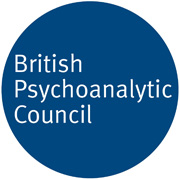The link between Attachment Trauma and Complex PTSD
Therefore, if a child’s early relational needs for safety, closeness and support are not met, it can result in insecure attachment patterns, and even attachment trauma, whereby children have difficulty depending on others for support and are not able to regulate their own emotions. They experience marked anxiety, anger, and a desire to be loved and taken care of. These feelings may also trigger dissociative states, the experience of feeling “spaced out” and excessive hyperarousal to avoid what they feel (their emotions) and/or what they perceive (their cognitions).
Other types of painful experiences during the early years, such as abandonment, repeated and ongoing rejection, a loss of a parent to death and divorce can also lead to attachment trauma, as a result of not having a loving, stable, and supportive caregiver who can help the child regulate their emotions effectively. People who struggle to establish and maintain healthy and emotionally stable relationships may experience problems rooted in attachment trauma. Experts explain that “attachment trauma is not what happens to you, but what happens inside you”.
A child’s relationship with their primary caregiver is their first experience of how to be in a relationship with another person and thus very important because this experience will affect their adult life. A rupture in the bonding process in the early years is likely to negatively impact their mental health, relationship, and sense of self later in life and is likely to result in an anxious/ disorganised attachment style.
Issues in adulthood caused by attachment trauma:
- Excessive fear of rejection, intimacy and abandonment
- Marked feelings of shame and guilt
- Difficulty trusting or feeling close to others
- Difficulty maintaining or avoiding relationships
- OR becoming overly attached to or co-dependent on others
- Questioning one’s self-worth and sense of self
- Difficulty regulating emotions
- Over reactivity to stress and reminders of the past
- The lack of or unhealthy boundaries
- Hyperarousal
Attachment trauma affects biological, neurological, cognitive, emotional, and physical development. It impacts how one relates to themselves and others, how they process information and respond to emotional arousal. Unresolved attachment trauma is often referred to as one’s inner child because it is the young or child part of self that holds the trauma. Reminders of painful past traumatic events and painful memories can trigger this child part and the adult often responds with fear, vulnerability, hopelessness and insecurity as if they were that small child.
People who suffered attachment trauma experience higher rates of developing complex PTSD (read more about this here) and other mental health issues, as well as physical health issues (coronary artery disease, hypertension, chronic illness, chronic pain and autoimmune disorders), in adulthood.
Comorbidity with other mental health conditions:
- Anxiety disorders (separation anxiety, panic and fear)
- Depression
- Low self-esteem
- Complex PTSD
- Borderline personality disorder
- Dissociative identity disorder
- Eating disorder
- Addictions
This video explains the significance of attachment in the early years
If you experienced childhood attachment trauma and you think that you may have PTSD or CPTSD and would like to get psychological support, please do get in touch here.









